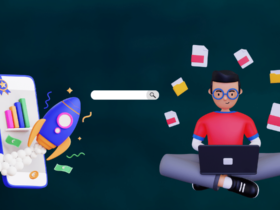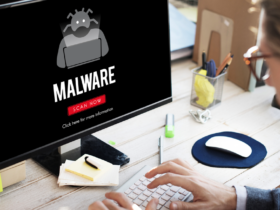A botnet is a network of computers that have been infected with malware and are under the control of a malicious actor. Botnets can be used for a variety of nefarious purposes, such as launching denial-of-service attacks, stealing data, or sending spam. Are botnets illegal? It depends. If the botnet is being used for illegal purposes, then yes, it is illegal. However, simply owning a botnet is not necessarily illegal. It really depends on how the botnet is being used. For example, if you have a botnet of 100,000 computers and you use it to launch a denial-of-service attack against a website, that would be illegal. However, if you just have a botnet and don’t use it for anything, that would not be illegal. If you’re worried that your computer might be part of a botnet, there are some things you can do to check. For example, you can use a tool like Netcraft to see if there are any suspicious DNS entries associated with your IP address. You can also use security tools like Malwarebytes to scan your computer for malware.
What is a botnet?
A botnet is a network of infected computers that are controlled by a bot herder. The bot herder can use the botnet to launch attacks against other computers or networks, or to send spam or phishing emails. Botnets can be used for legitimate purposes, such as managing large numbers of social media accounts, but they are more often used for malicious purposes.
Are botnets illegal? There is no definitive answer, as there is no international law that explicitly outlaws botnets. However, many countries have laws against computer intrusion and cybercrime, which could be applied to activities carried out using a botnet. In addition, some ISPs may take action against users who are found to be operating a botnet. For example, Comcast has been known to disconnect customers who are found to be using their network for malicious activity.
What is an example of a botnet? One of the most famous examples of a botnet is Mirai. In 2016, Mirai was used in a series of distributed denial-of-service (DDoS) attacks that caused major internet disruptions around the world. The operators of Mirai were able to take control of hundreds of thousands of devices that had been infected with malware. These devices were then used to launch DDoS attacks against targets such as DNS provider Dyn and security journalist Brian Krebs.
How do botnets work?
A botnet is a network of devices, each of which has been infected with malware. The malware allows the device to be controlled by a central server, which can then use the devices to carry out various tasks, such as launching denial-of-service attacks or sending spam.
Botnets can be used for legitimate purposes, such as carrying out distributed computing tasks, but they are more often used for malicious purposes. For example, a botnet might be used to launch a denial-of-service attack against a website or send spam emails.
Botnets are generally created by infecting devices with malware. The malware then allows the device to be controlled by a central server. The server can then use the devices to carry out various tasks, such as launching denial-of-service attacks or sending spam.
Creating and using botnets is generally illegal. However, there may be some legal uses for botnets, such as carrying out distributed computing tasks.
Are botnets illegal?
Most botnets are created without the owner’s knowledge and are used to commit crimes such as denial of service attacks, spamming, and identity theft. While the creation of a botnet may not be illegal, the use of a botnet to commit illegal activity is definitely against the law.
Examples of botnets
Botnets are networks of computers infected with malware that allow attackers to control them remotely. They can be used for a variety of purposes, including sending spam emails, launching denial-of-service attacks, and stealing information.
While botnets can be used for legitimate purposes, such as distributed computing or managing large networks, they are often used for malicious activities. In many cases, the owners of the computers in a botnet are unaware that their machines have been compromised.
There have been several notable botnets in recent years, including:
- The Storm botnet was one of the largest and most well-known botnets. It was estimated to have comprised millions of computers at its peak and was used to send out billions of spam emails. It was also involved in a number of high-profile denial-of-service attacks, including ones against MySpace and eBay.
- The Waledac botnet was another large spamming botnet that was taken down in 2010. Like the Storm botnet, it is estimated to have comprised millions of computers.
- The Conficker worm created a massive botnet that is still active today. It is believed to infect millions of computers and is used for a variety of purposes, including stealing information and sending out spam emails.
How to protect against botnets?
Botnets are networks of infected computers that can be controlled by a single attacker. They are often used to launch attacks against websites or other online services.
There are a few things you can do to protect yourself from botnets:
- Keep your computer up to date with the latest security patches. This will help to close any vulnerabilities that could be exploited by attackers.
- Use a reputable antivirus and anti-malware program. These programs can detect and remove malware from your computer before it has a chance to infect your system.
- Be cautious when clicking on links or opening attachments in email messages. These are common ways for attackers to spread malware. If you’re not sure about a link, hover over it with your mouse to see where it will take you before clicking on it.
How to protect your computer from botnets?
Botnets are networks of infected computers that can be used to carry out attacks or spread malware. They are often used without the owner’s knowledge and can cause serious damage to both individual users and businesses.
There are a few things you can do to protect your computer from becoming part of a botnet:
- Keep your operating system and software up-to-date
One of the most important things you can do to protect your computer is to keep your software up-to-date. This includes your operating system, as well as any applications you have installed. Outdated software is one of the main ways that botnets are able to infect computers in the first place, so by keeping everything up-to-date you make it much harder for them to get a foothold.
- Use a reputable antivirus program
Another important step in protecting your computer is to use a reputable antivirus program. This will help to detect and remove any malicious software that does manage to get onto your system. There are many different antivirus programs available, so do some research to find one that suits your needs.
- Be cautious about what you click on
One of the most common ways that botnets spread is through email attachments or links in websites and social media posts. Many people click on these without thinking, but it only takes one click to infect your computer. So be cautious about what you click on, even if it seems like it’s from a trusted source.
- Keep your personal information safe
Botnets can also be used to steal personal information, so it’s important to keep your details safe. This includes things like your name, address, date of birth, and financial information. Be careful about who you share this information with, and make sure you have a strong password on any online accounts.
- Back up your data regularly
If your computer does become infected with malware, it’s important to have a backup of your data. This way you can restore your system to how it was before the infection and avoid losing any important files. There are many different ways to back up data, so choose the method that’s right for you.
Conclusion
Botnets are not illegal in and of themselves, but they can be used for illegal purposes. For example, a botnet could be used to send spam emails or launch denial-of-service attacks. If you suspect that your computer has been infected with a botnet, you should contact your local law enforcement agency.











FIND US ON SOCIALS